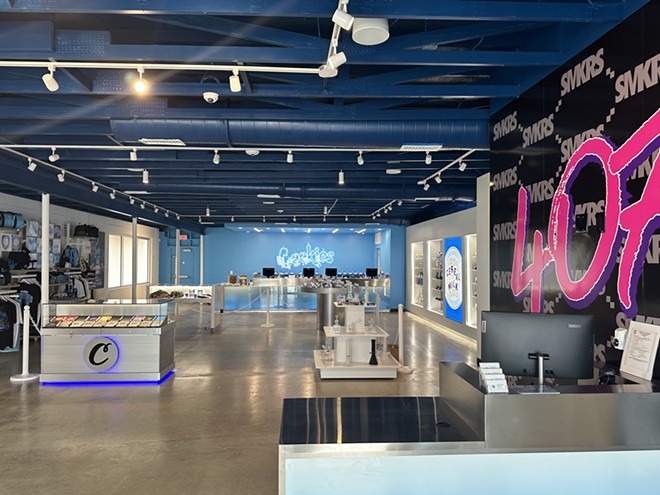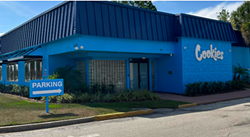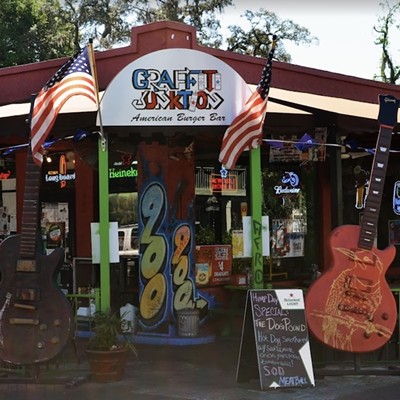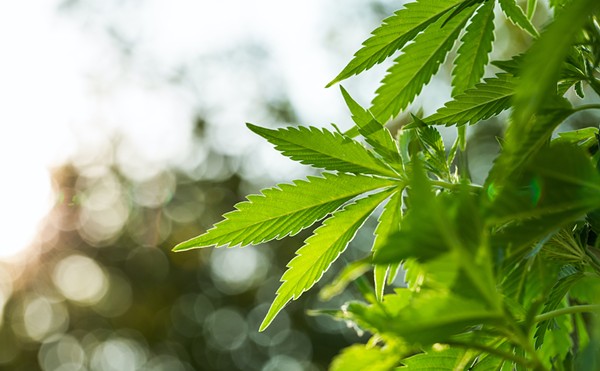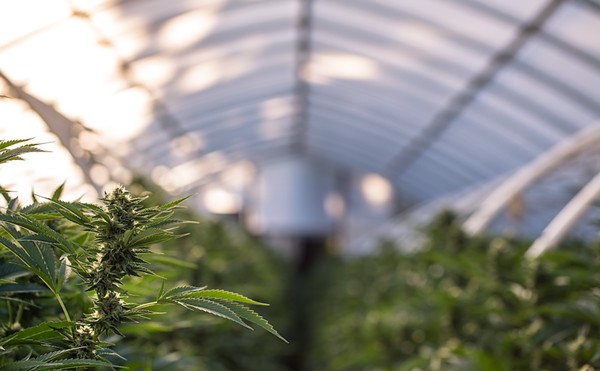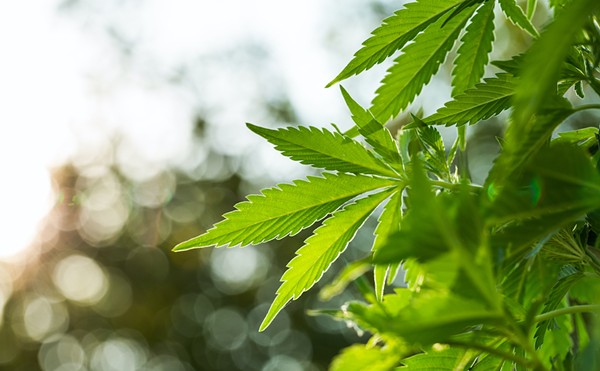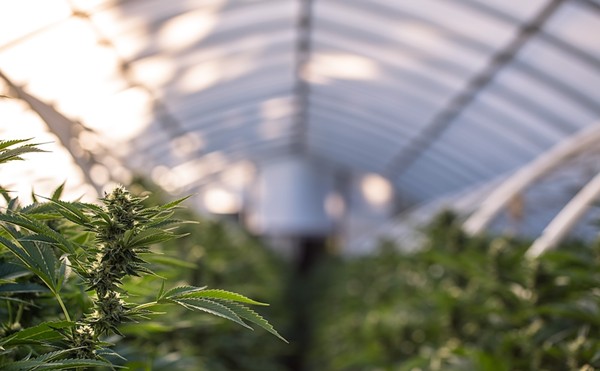High Growth: The Economic Impact of Florida's Blossoming Medical Cannabis Program
By Cookies Sponsored on Fri, May 26, 2023 at 1:18 am
ADVERTISEMENT. Orlando Weekly news staff was not involved in the creation of this content. Please note, this report is written for informational purposes only.
The Florida medical cannabis program, legalized in 2016, has swiftly grown into an economic juggernaut, transforming the state's fiscal landscape while providing an essential service to patients. This burgeoning industry has made significant strides in job creation, local economy stimulation, and community development.
The medical marijuana industry in Florida, valued at an estimated $1.8 billion, is one of the largest in the nation. Last year, Florida continued its double-digit growth, adding an astonishing 324,400 medical marijuana patients — bringing the state’s registered total to 781,000. This rapid growth has led to the establishment of more than 500 dispensaries across the state, each playing a crucial role in bolstering local economies.
One of the most notable benefits of this industry's growth is job creation. A recent Vangst jobs report reveals that the cannabis industry in Florida supplies over 29,000 full-time jobs, marking a remarkable year-over-year growth rate of 12%. The industry, with its robust job creation, has become a mainstay of the state's employment landscape with Florida ranking fourth nationwide for cannabis jobs by numbers and employing the largest workforce among medical-only states.
Florida's cannabis industry is characterized by vertical integration, a business model that requires companies to manage all stages of production, from cultivation and processing to distribution and retail. This approach not only provides job opportunities at the retail level but also creates numerous jobs in cultivation and processing.
TRP, the largest operator of Cookies dispensaries nationwide, is a prime example of this trend. As TRP expands its Florida footprint — including the opening of Cookies Orlando on Saturday, May 27th — it has created hundreds of jobs across various sectors of the industry. Each new TRP dispensary generates between 15 and 20 new roles, while their cultivation sites and processing facilities require a significant workforce. These jobs often come with specialized training and career development opportunities, contributing to the state's skilled workforce.
In addition to job creation, the medical cannabis industry has significantly augmented local economies through tax revenue. The Florida Department of Revenue reported that medical marijuana sales generated over $60 million in sales tax revenue in 2022, a 20% increase from the previous year. In Orlando, this surge in sales translated to approximately $5 million in local sales taxes, funds that are instrumental in supporting city services and development projects.
The cannabis industry, represented by organizations like TRP, often plays an instrumental role in enhancing local economies. Dispensaries are regularly established in areas that are underserved or in need of rejuvenation. These facilities generate significant tax revenue, which can be reinvested locally, while also engaging deeply with the community, thereby becoming key contributors to their neighborhoods.
Research validates the positive economic impact of dispensaries. A study by the University of Colorado discovered that the presence of a dispensary led to a 15% increase in foot traffic within a 500-foot radius. This, in turn, can invigorate neighboring businesses. Indeed, a study by the University of California, Berkeley found that the presence of a dispensary led to a 10% increase in sales at neighboring businesses. Additionally, a study by the University of Washington indicated that the presence of a dispensary led to a 5% increase in property values within a 1,000-foot radius.
Local dispensaries also play a significant role in community development. In Orlando and Miami, TRP launched a “Good Neighbor” program, giving stores and their employees the opportunity to give back. Their recent efforts included gathering donations for hurricane relief efforts and assisting organizations that help those living under the poverty threshold in their community. TRP remains steadfast in their commitment to ongoing community service endeavors and forging partnerships with local non-profit organizations as the company expands its presence across Florida.
Presently, TRP is developing stores in several major markets throughout Florida. The company consistently seeks to enhance patient access to their products via these stores, as well as their continually expanding delivery zones within the state. By the end of 2024, TRP aims to be accessible to 85% of Florida's population through their retail dispensaries and delivery zones.
Florida’s tourism industry, a powerful economic catalyst for the state, attracted an estimated 137.6 million people in 2022, a record figure representing a 12.9% increase from 2021, and a 5% rise from 2019, before the pandemic. According to Visit Florida, this surge in tourism generated an estimated $119 billion in economic activity and supported over 1.4 million jobs in 2022, illustrating the state's consistent appeal to vacationers worldwide.
Parallel to this, the medical marijuana patient population, which constitutes less than 4% of Florida's 21 million residents, suggests a landscape ripe for growth. The introduction and regulation of a recreational adult-use market could potentially double the state’s cannabis sales and related jobs within one to two years. By way of comparison, Arizona, a state with only one-third of Florida’s population, recorded $1.35 billion in sales in its first adult-use year. Extrapolating from this, a similar progression in Florida could cultivate a $4 billion annual market supporting more than 70,000 jobs.
The economic impact of Florida's growing medical cannabis program is substantial and clear. As the industry evolves and the patient base broadens, its contributions to Florida’s economy and communities are poised to increase. Coupled with the thriving tourism industry, the state has significant opportunities for further economic stimulation and job creation within the cannabis sector.
–
The statements made in this sponsored post are those of the paid sponsor and not those of Orlando Weekly, and are not intended as medical advice. Consult your doctor before undertaking any changes to your physical, mental or dietary health.
The Florida medical cannabis program, legalized in 2016, has swiftly grown into an economic juggernaut, transforming the state's fiscal landscape while providing an essential service to patients. This burgeoning industry has made significant strides in job creation, local economy stimulation, and community development.
The medical marijuana industry in Florida, valued at an estimated $1.8 billion, is one of the largest in the nation. Last year, Florida continued its double-digit growth, adding an astonishing 324,400 medical marijuana patients — bringing the state’s registered total to 781,000. This rapid growth has led to the establishment of more than 500 dispensaries across the state, each playing a crucial role in bolstering local economies.
One of the most notable benefits of this industry's growth is job creation. A recent Vangst jobs report reveals that the cannabis industry in Florida supplies over 29,000 full-time jobs, marking a remarkable year-over-year growth rate of 12%. The industry, with its robust job creation, has become a mainstay of the state's employment landscape with Florida ranking fourth nationwide for cannabis jobs by numbers and employing the largest workforce among medical-only states.
Florida's cannabis industry is characterized by vertical integration, a business model that requires companies to manage all stages of production, from cultivation and processing to distribution and retail. This approach not only provides job opportunities at the retail level but also creates numerous jobs in cultivation and processing.
TRP, the largest operator of Cookies dispensaries nationwide, is a prime example of this trend. As TRP expands its Florida footprint — including the opening of Cookies Orlando on Saturday, May 27th — it has created hundreds of jobs across various sectors of the industry. Each new TRP dispensary generates between 15 and 20 new roles, while their cultivation sites and processing facilities require a significant workforce. These jobs often come with specialized training and career development opportunities, contributing to the state's skilled workforce.
In addition to job creation, the medical cannabis industry has significantly augmented local economies through tax revenue. The Florida Department of Revenue reported that medical marijuana sales generated over $60 million in sales tax revenue in 2022, a 20% increase from the previous year. In Orlando, this surge in sales translated to approximately $5 million in local sales taxes, funds that are instrumental in supporting city services and development projects.
The cannabis industry, represented by organizations like TRP, often plays an instrumental role in enhancing local economies. Dispensaries are regularly established in areas that are underserved or in need of rejuvenation. These facilities generate significant tax revenue, which can be reinvested locally, while also engaging deeply with the community, thereby becoming key contributors to their neighborhoods.
Research validates the positive economic impact of dispensaries. A study by the University of Colorado discovered that the presence of a dispensary led to a 15% increase in foot traffic within a 500-foot radius. This, in turn, can invigorate neighboring businesses. Indeed, a study by the University of California, Berkeley found that the presence of a dispensary led to a 10% increase in sales at neighboring businesses. Additionally, a study by the University of Washington indicated that the presence of a dispensary led to a 5% increase in property values within a 1,000-foot radius.
Local dispensaries also play a significant role in community development. In Orlando and Miami, TRP launched a “Good Neighbor” program, giving stores and their employees the opportunity to give back. Their recent efforts included gathering donations for hurricane relief efforts and assisting organizations that help those living under the poverty threshold in their community. TRP remains steadfast in their commitment to ongoing community service endeavors and forging partnerships with local non-profit organizations as the company expands its presence across Florida.
Presently, TRP is developing stores in several major markets throughout Florida. The company consistently seeks to enhance patient access to their products via these stores, as well as their continually expanding delivery zones within the state. By the end of 2024, TRP aims to be accessible to 85% of Florida's population through their retail dispensaries and delivery zones.
Florida’s tourism industry, a powerful economic catalyst for the state, attracted an estimated 137.6 million people in 2022, a record figure representing a 12.9% increase from 2021, and a 5% rise from 2019, before the pandemic. According to Visit Florida, this surge in tourism generated an estimated $119 billion in economic activity and supported over 1.4 million jobs in 2022, illustrating the state's consistent appeal to vacationers worldwide.
Parallel to this, the medical marijuana patient population, which constitutes less than 4% of Florida's 21 million residents, suggests a landscape ripe for growth. The introduction and regulation of a recreational adult-use market could potentially double the state’s cannabis sales and related jobs within one to two years. By way of comparison, Arizona, a state with only one-third of Florida’s population, recorded $1.35 billion in sales in its first adult-use year. Extrapolating from this, a similar progression in Florida could cultivate a $4 billion annual market supporting more than 70,000 jobs.
The economic impact of Florida's growing medical cannabis program is substantial and clear. As the industry evolves and the patient base broadens, its contributions to Florida’s economy and communities are poised to increase. Coupled with the thriving tourism industry, the state has significant opportunities for further economic stimulation and job creation within the cannabis sector.
–
The statements made in this sponsored post are those of the paid sponsor and not those of Orlando Weekly, and are not intended as medical advice. Consult your doctor before undertaking any changes to your physical, mental or dietary health.

WE LOVE OUR READERS!
Since 1990, Orlando Weekly has served as the free, independent voice of Orlando, and we want to keep it that way.
Becoming an Orlando Weekly Supporter for as little as $5 a month allows us to continue offering readers access to our coverage of local news, food, nightlife, events, and culture with no paywalls.
Newsletters
Join Orlando Weekly Newsletters
Subscribe now to get the latest news delivered right to your inbox.

